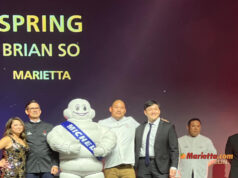
One of my favorite relatives growing up was my great-grandmother, who we called Mimi. Even though she lived in an assisted living facility, her health was good and her mind sharp. I loved listening to stories about her days as a flapper and living through World War II. She was also an accomplished painter and sculptor, a passion she continued to indulge with her close friends at the facility. She passed away a few months before her 101st birthday.
While the mythic fountain of youth has eluded us, we are, overall, living longer than previous generations. The average life expectancy in the United States is now 78.5 years, but according to the journal Science, about 7 in 1,000 people will live to be 100 years old. Imagine all the history you would witness if you lived that long. Besse Cooper, a resident of Monroe, Ga., held the Guinness World Record title of oldest living person before she passed away in December at the age of 116. Since her birth in 1896, World Wars I and II as well as wars in Korea, Vietnam, Iraq and Afghanistan have been fought; 12 constitutional amendments have been ratified (including women’s suffrage and both the institution and repeal of Prohibition); 21 presidents have served; the Great Depression and the current recession have wreaked havoc on the economy; and untold social movements have unfolded.
With the amount of war and social upheaval that can unfold in a lifetime, it is nothing short of miraculous that people can live healthy lives for so long. While genetics and environmental factors certainly play a role in determining lifespan, recent studies reveal that personality and attitude count for more than most people probably realize. Nir Barzilai, Ph.D., the director of the Institute for Aging Research at Albert Einstein College of Medicine in the Bronx, recently published research from his Longevity Genes Project. Common traits among centenarians include being extroverted, laughing often and not being afraid to express emotions. While a certain amount of aches and pains are to be expected past a certain age, Daniela Jopp, Ph.D., of Fordham University, found that those who age successfully adjusted their expectations about their health and did not to focus on complaints.
In 2011, researchers Howard S. Friedman and Leslie R. Martin published “The Longevity Project,” the culmination of 20 years of studies on key predictors of longevity. Their research indicates that people who were conscientious and committed to their jobs (even going so far as to work part-time after retirement), friends and family, fared the best. Additionally, obsessing over diet and structured exercise routines does not necessarily lead to a longer life as much as making a concerted effort to be active.
What I take away from these studies is the need for balance in our lives, taking each day as it comes and maintaining a strong social network, which is often more difficult than eating right and getting enough sleep. Even when the inevitable characteristics of age set in—fading eyesight, limited mobility—you can continue to nurture your friendships by taking advantage of Cobb County’s network of active adult facilities, like Presbyterian Village and Sterling Estates. These facilities, and many others like them, understand the importance of social bonds in the twilight years.
The New Year is a time full of promise and hope, but try as we might, with our to-do lists and resolutions, we cannot know what the future holds. So make sure that calling friends on their birthdays and taking time for yourself is just as high on the list as counting calories.















